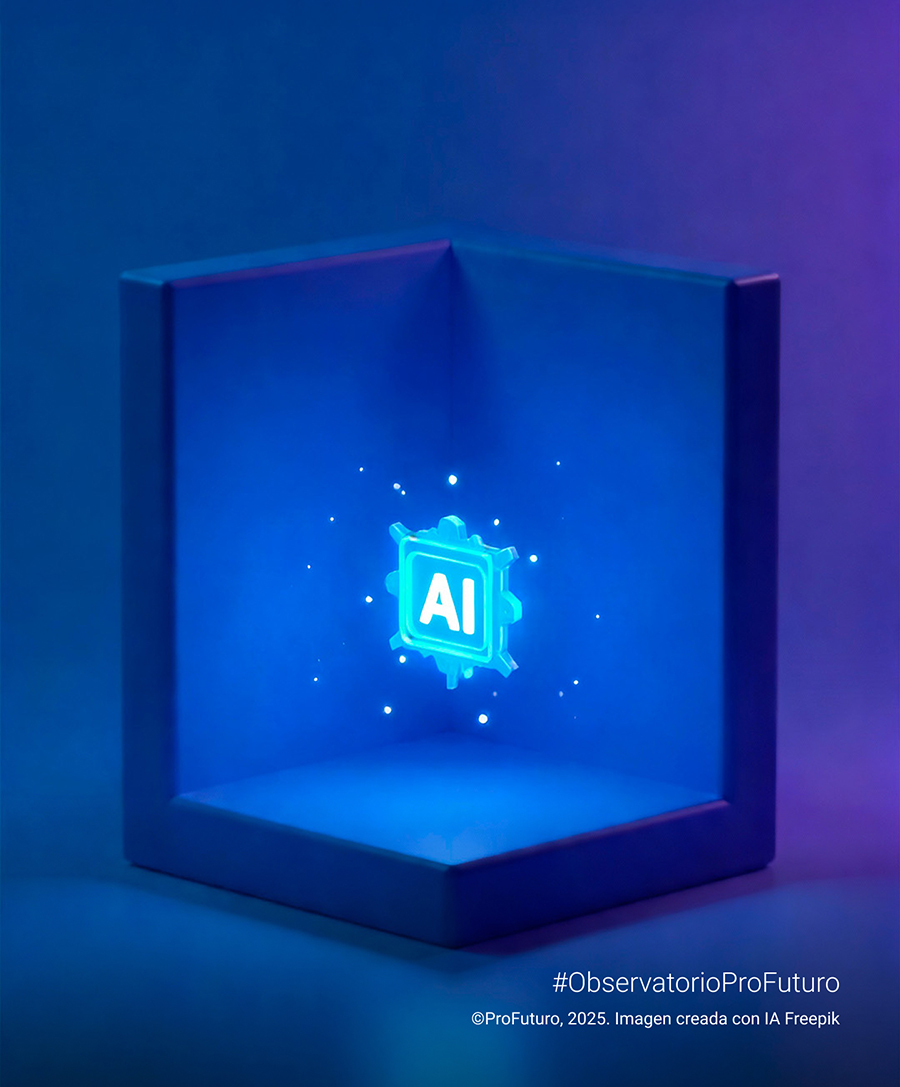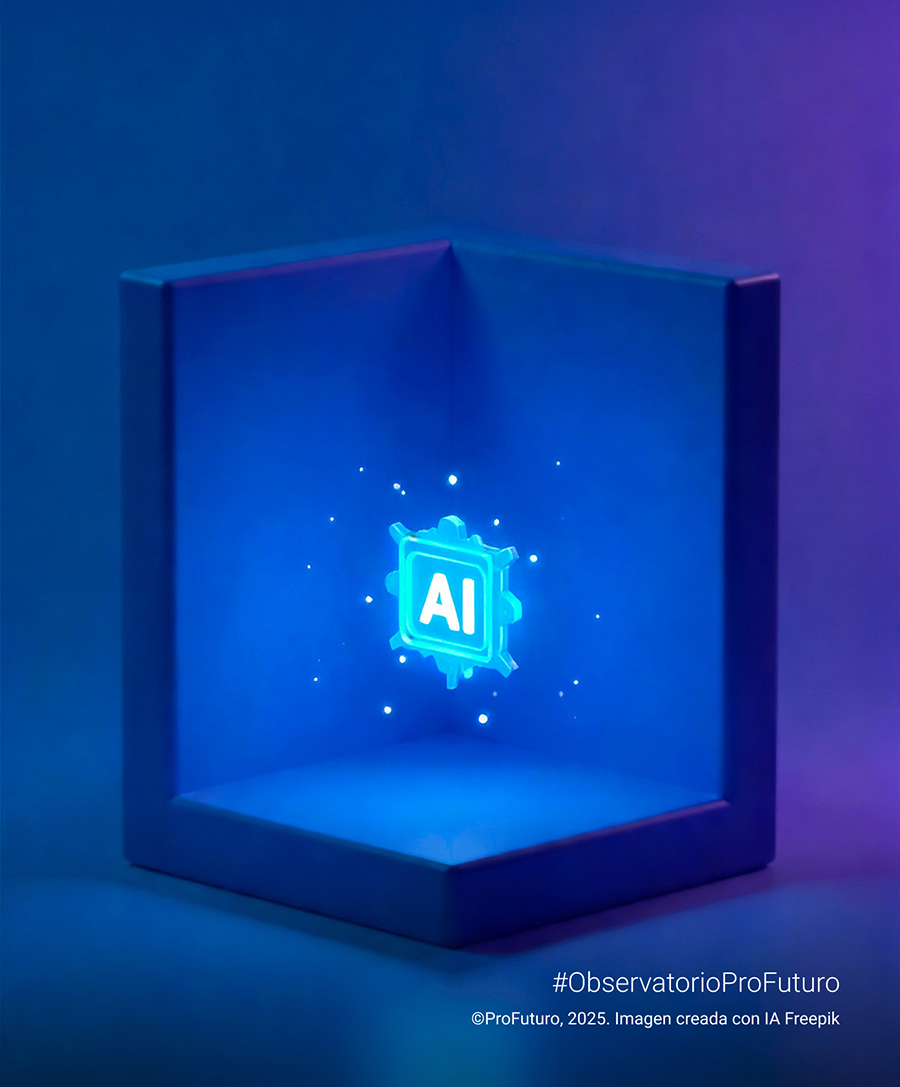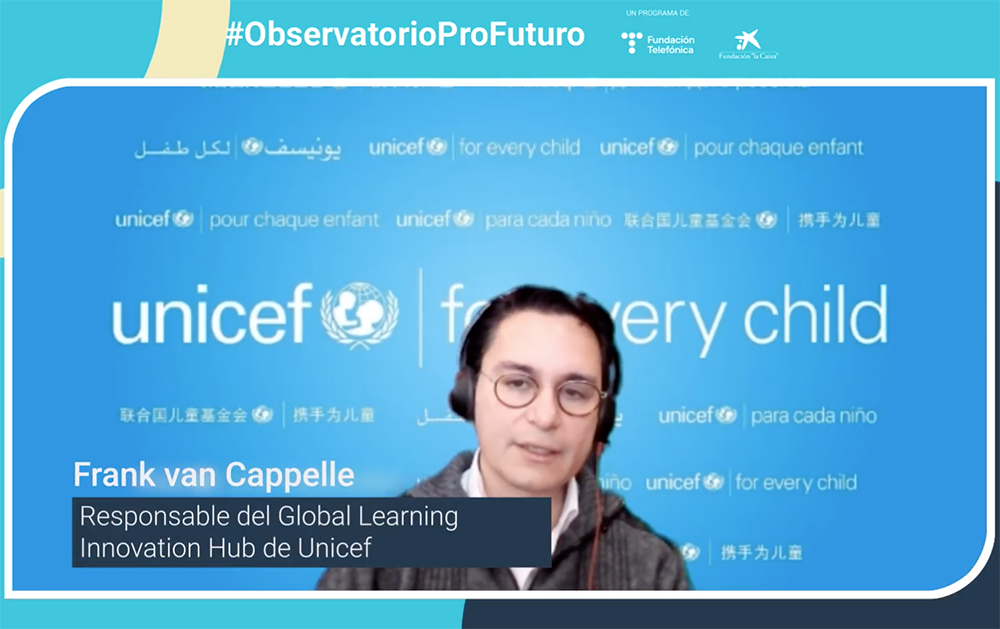Artificial intelligence, digital citizenship, 2030 skills, digital teachers… what will we be talking about in the world of education in the coming years? What will the big issues at the centre of the educational agenda and debate be? We share our predictions below through the reflections of some of the experts who’ve visited the Observatory.
1.- Artificial intelligence

The world of artificial intelligence is everywhere. For example, when you search for something online, when you talk to a voice assistant or when Netflix and Spotify suggest series, films and songs; it isn’t magic or witchcraft. It’s artificial intelligence. We could fill pages and pages with the numerous applications of artificial intelligence that we use in our lives on a daily basis and those which indirectly make our lives much easier in areas related to finance, medicine, the environment and so on.
In view of the major applications of artificial intelligence that are already present in other sectors, the inevitable questions are: what are the potential contributions of artificial intelligence to education? Can it help us to make progress towards reducing inequalities and the education gap? If so, how can it do so? This was the subject of the joint report drawn up by ProFuturo and Unesco, in which the two institutions also confirmed the main challenges that need to be addressed to improve equity and quality in education. In the same report, both institutions determined the six main challenges that need to be addressed to improve the equity and quality of education through artificial intelligence. We’ll explain everything in this post.
Focusing on the problem: teaching skills
One of the consequences of the introduction of technology into the classroom is that it’s highlighted the new skills that teachers need, not only digital ones but also others related to digital pedagogy and how to teach effectively in online environments. According to Wayne Holmes, Unesco’s advisor on educational and AI issues, “we need to focus on the problems and not on the symptoms of the problems. The symptoms are that young people aren’t getting the education they deserve. But the problem is often that the teachers in these places are poorly qualified and with little experience, and we have to strive to improve and enhance these people’s qualifications, experience and competences in the classrooms”.
Can we do this with AI? Yes, we can. However, “in the research world, there’s been almost no work on ways of using AI to directly support teachers. Only the use of AI to perform the teachers’ functions is being researched”. In order not to lash out blindly in the proper application of technology in education, it’s essential “to be sure about which problem we want to solve and not just focus on the symptom, going to the core of the problem and developing technology that allows us to deal with and resolve it”. If you want to learn more about how to make appropriate use of artificial intelligence in education in vulnerable environments, read this post.
2.- Global citizenship: skills on the rise

Today’s world is nothing like the world we knew 20 years ago. The 21st century has brought major technological, social and environmental changes. In order to move around this new reality, today’s children need to learn skills which, although they aren’t new, have become extremely important within the current-day context. They’re skills that comprise global citizenship.
What’s a global citizen? According to Dina Buchbinder, a global citizen is “a person who, in any context, is able to put civic values into practice, aware of global challenges and how they relate to their community and interested in finding solutions to these challenges and developing skills to resolve them individually and collectively.
To overcome these challenges, a global citizen has to develop competences and skills such as critical thinking, collaboration and teamwork, leadership, digital literacy, creativity and problem-solving. To do so, “it’s essential to spread that vision, that action as global citizens, from childhood”. Because education is the most effective and powerful channel for making a truly meaningful transition towards reducing inequality in the world. The children involved in Club 2030 are well aware of this.
3.- Digital citizenship
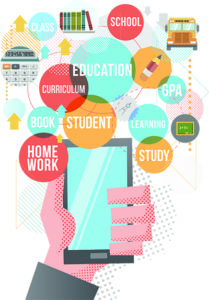
At ProFuturo Observatory, we believe in the importance of developing digital citizenship from childhood as a way of being and acting in a responsible way in the digital world.
But what’s digital citizenship? Marcela Momberg, a teacher and expert in social media applied to education, explains: Although it’s a concept that undergoes constant reconstruction, we could say that these are the competences that a citizen must have in this hyper-connected era in order to exist in this space. This includes skills to sift through information, to communicate, to take care of oneself, to create in a completely different space, to democratise information. It’s a sum of competences that allow us to know what duties and rights we have in a space that’s in continuous transformation.
Knowing how to differentiate information, care for oneself and participate and create are, according to the teacher, the fundamental pillars that should be worked on from the early school years, so that when students reach their final year, they’ll be citizens with well-developed competences and skills.
How can we help teachers to learn and teach digital citizenship? In this regard, it’s important to make it very clear that pedagogy can’t be subordinated to technology under any circumstances. We must support the teachers and help them to lose their fear of the digital world and understand that, in order to educate in the digital space, they have to work with tools they feel comfortable with and incorporate them into their pedagogical designs, evaluating the impact that these technologies have on pedagogy.
4.- Technology as the main way of combating the education gap
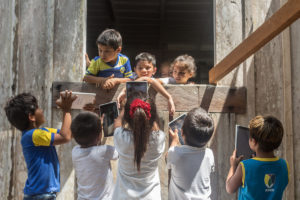
Foto: ProFuturo. Autor: Ismael Martínez.
“Education enables upward socio-economic mobility and is key to escaping poverty”. The UN says so. However, despite the progress made in expanding access to education in schools at all levels, approximately 260 million children around the world still don’t go to school.
Perhaps, before the pandemic, we underestimated the power of technology to accelerate learning and make it more accessible. Now we’re seeing its full potential; it allows for differentiated learning in keeping with the needs of each student and ensures that everyone has constant access to learning”. With these words Kopp emphasised the major role that technology can play when it comes to improving access to education and accelerating and enhancing learning. She did so during a chat with Magdalena Brier, the Director General of ProFuturo, in which she also referred to the need to strive to achieve educational equality because, in a world with difficult challenges to be overcome, “we know that collective well-being depends on all children receiving the education, support and opportunities to develop skills that will enable them to create a better future for everyone and resolve increasingly complex problems”.
How can digital education help?
According to Jacqueline Strecker, UNHCR’s head of connected education, digital education helps us to raise people’s expectations about what they believe is possible. “Education is a passport to the future and bringing all these digital resources to these locations is helping us to change and remove the geographical barriers. We’re working together with the communities to open up possibilities for the next generations, for those who’ll be the future leaders of the world, and to open the door to this increasingly digitised society. Building digital inclusion and literacy is key to this”.
The five principles of the use of EdTech in education
One of the fundamental questions at the heart of the EdTech debate is how technology can help to bridge the educational divide. And, more specifically, how to steer public policies and decision-making to achieve a long-term impact in education. In this respect, Robert Hawkins, global director of technology and educational innovation at the World Bank, spoke about the five basic principles that every political leader should bear in mind when it comes to planning public policies in this area. You’ll find them in this post.
5.- The new teachers
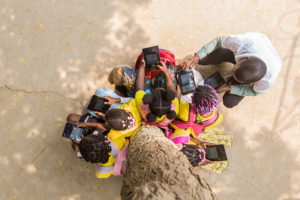
Foto ProFuturo. Autor: Ismael Martínez.
Having quality teachers is the most important and decisive element in children’s learning and well-being. The World Bank has stated, and several studies show that the difference between a poor-quality teacher and an excellent one can increase (or decrease) learning over several years.
The role of teachers is essential in this digital age for capitalising on the benefits of technology and narrowing the education gap. Today, more than ever, we need trained teachers who go far beyond the old-fashioned mere conveying of knowledge to the children. We need teachers who are motivated and able to motivate; who can handle new pedagogies and are able to activate the desire to learn in their students with the support of technology; teachers who encourage creativity, critical thinking, teamwork, empathy and resilience; who are able to adapt quickly to a rapidly changing context.
“Technology is the easy bit. What’s difficult is developing ourselves and the teaching profession so that we know how to make better use of this technology and ensure children benefit from it”, stated Wendy Kopp in her chat with Magdalena Brier. “We have to ensure that all the teachers have the pedagogical and technological skills to help their students to develop the academic and social-emotional competences they need to reach where they want to go”.
In this respect, as social entrepreneur Juan Manuel Lopera declared, “the needs of teachers are on several fronts. Not just technological tools, but also access to content so that they can plan their lessons, curate the content to make sure they are choosing the right tools, take metrics. They need to be connected to other teachers, and to have access to communities that help them refine their practices…”
It’s necessary to train teachers in didactic and pedagogical skills, social leadership and digital competences, making them agents of change in their respective educational communities. They’ll thus be able to lead a cascade of teacher training at their schools, generating a long-term impact on the lives of thousands of children through education.




